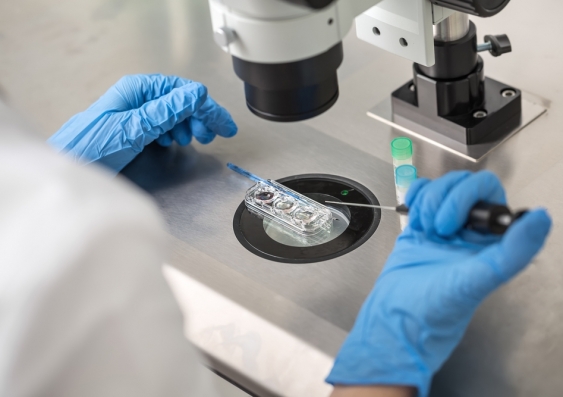New national IVF clinic success rates released
A UNSW-developed website has been updated with the latest data on IVF clinic success rates.
A UNSW-developed website has been updated with the latest data on IVF clinic success rates.

UNSW Sydney’s National Perinatal Epidemiology and Statistics Unit (NPESU) has released the third tranche of national data on IVF clinic success rates on its website, YourIVFSuccess.
More than 90,000 people have used YourIVFSuccess to inform their fertility journey since it was launched in 2021.
The independent, government-funded website — which enables patients to calculate their chance of IVF success, as well as check the success rates of clinics they’re considering attending — was developed by NPESU and is attracting about 3000 visitors a month who want to know more about fertility treatment.
The information featured on the website is based on all IVF cycles performed in Australia. “It allows patients to search all 90 accredited IVF clinics in Australia, providing independent and impartial information about the clinics and their treatment success rates,” NPESU Director Professor Georgina Chambers said.
Patients also have access to an online calculator — Patient Estimator — that allows couples to predict their personalised chances of having a baby using IVF, based on their individual characteristics, such as age, prior pregnancy and fertility treatment history, and causes of infertility.
The data that underpins the website is supplied each year to UNSW by all Australian fertility clinics, allowing independent comparisons between clinics to be made and presented in the same way for every clinic.
“This patient-focused website is designed to help would-be parents navigate the difficult and complex IVF journey,” Prof. Chambers said.
The website was created following calls for greater transparency about fertility treatments. Previously the only way a patient could look at success rates was to go to individual clinics directly where outcomes were presented in different ways, making comparison difficult.
President of Fertility Society of Australia and New Zealand, which represent IVF clinics and patients, and Monash IVF fertility specialist, Professor Luk Rombauts, said that “the fact that so many people are using the YourIVFSuccess website each month shows just how much need there is for independent information about IVF clinics and the chance of success from IVF treatment”.
It is the only detailed central source of information on IVF clinics for patients on IVF in Australia. The IVF clinic success rates are independently calculated by UNSW, and each clinic’s success rates are calculated exactly the same way using the same data.
The Patient Estimator, which provides personalised predictions of IVF success in up to three IVF cycles, is the most advanced IVF prediction tool in the world. It is based on artificial intelligence algorithms applied to information from over 600,000 cycles performed in Australia. Prof. Chambers said, “This makes it particularly relevant for Australian patients because IVF is practised quite differently throughout the world.”
Infertility affects one in seven couples, highlighting the great need for fertility education to support patients through a challenging yet hopefully rewarding journey. Assisted reproductive technology (ART) treatments help many individuals conceive a child each year, with more than 16,000 babies conceived from more than 87,000 treatment cycles performed in Australia.
However, embarking on ART treatment is a major life decision, with profound implications for physical, psychological and economic wellbeing.
Sydney’s City Fertility specialist Professor Bill Ledger has more than 30 years of experience in fertility, obstetrics and gynaecology and leads the fertility research group at UNSW and the Fertility Research Centre at the Royal Hospital for Women. “YourIVFSuccess gives patients the information they need to prepare to visit a clinic, and that helps them know what to discuss with the doctors and nurses who will handle their care,” Prof. Ledger said. “Patients aren’t statistics and every journey is different, therefore I encourage patients to discuss the success rates obtained from the website with their fertility speciality to see how relevant they are for them.”
Registered IVF midwife and NPESU senior project officer Celeste Wilson said the website was giving patients the information they needed to understand how their unique circumstances impact their chances of having a baby via IVF. “Patients have a real thirst for information to help them choose a clinic and also about what their chances will be in having a baby.”
The latest data can be viewed on the YourIVFSuccess website.